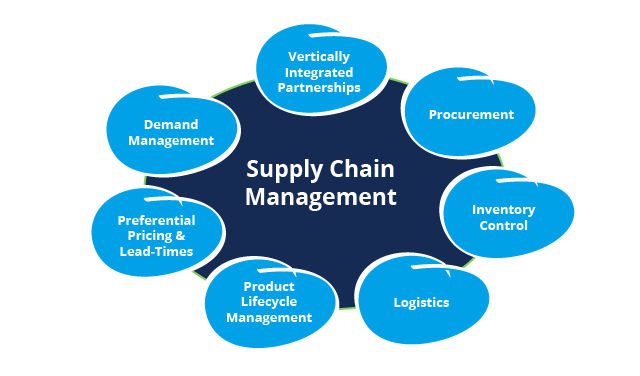The Crucial Role of the Procurement Process in Effective Supply Chain Management
Supply chain management is a multifaceted discipline that involves planning, implementing, and controlling the flow of goods and services from the point of origin to the point of consumption. At the heart of this complex system lies the procurement process in supply chain management, a fundamental component that plays a pivotal role in ensuring the smooth and efficient operation of the entire supply chain. In this blog, we will delve into the indispensable role of the procurement process in supply chain management and how it impacts businesses across various industries.
1. Strategic Supplier Selection
The procurement process in supply chain management begins with the strategic selection of suppliers. Careful consideration is given to factors such as supplier reliability, quality, cost-effectiveness, and geographic location. By choosing the right suppliers, businesses can establish strong partnerships that form the foundation of a resilient and responsive supply chain.

2. Cost Efficiency
Efficient procurement processes directly impact cost savings throughout the supply chain. Effective negotiations, bulk purchasing, and cost benchmarking are key strategies used in procurement to secure favorable terms and prices. These cost efficiencies contribute to the overall profitability of a business.
3. Risk Mitigation
Risk management is a critical aspect of supply chain management, and the purchasing process in supply chain management plays a significant role in mitigating potential risks. Procurement professionals assess supplier risks, geopolitical factors, market volatility, and other variables to develop strategies that minimize disruptions to the supply chain.
4. Quality Assurance
Quality control is a top priority in procurement. The purchasing process in supply chain management involves thorough supplier evaluations and assessments to ensure that the materials or products sourced meet the required quality standards. Maintaining consistent quality is essential for meeting customer expectations and reducing defects in the supply chain.
5. Inventory Management
Procurement decisions heavily influence inventory levels. Effective procurement strategies, such as just-in-time inventory management, help businesses optimize their stock levels. This prevents overstocking or understocking issues, reducing storage costs and ensuring product availability when needed.
6. Supplier Relationship Management
Maintaining healthy relationships with suppliers is an ongoing process in procurement. Open communication, collaboration, and feedback mechanisms foster trust and transparency. Strong supplier relationships enable businesses to respond quickly to changing market conditions and customer demands.
7. Sustainability and Ethical Practices
In today's business landscape, sustainability and ethical practices are paramount. Procurement professionals are responsible for evaluating suppliers' sustainability practices, ethical standards, and environmental impacts. Sustainable procurement contributes to a company's reputation and aligns with the growing demand for socially responsible products.
8. Strategic Planning
Strategic procurement planning involves forecasting demand, identifying potential bottlenecks, and developing contingency plans. This forward-thinking approach ensures that the supply chain remains agile and adaptable in the face of unforeseen challenges.
9. Technology Integration
Modern procurement processes leverage advanced technologies such as e procurement in supply chain management, data analytics, and artificial intelligence. These tools enhance efficiency, streamline operations, and provide valuable insights for better decision-making within the supply chain.
10. Compliance and Regulations
Procurement professionals at Procqur are responsible for ensuring that all procurement activities comply with relevant regulations and industry standards. Compliance safeguards against legal and reputational risks, ensuring that the supply chain operates within the boundaries of the law.
Wrap Up
In conclusion, the e procurement in supply chain management is the linchpin of effective supply chain . It encompasses various strategic, operational, and tactical activities that collectively contribute to the overall success of a business's supply chain. By recognizing the critical role of procurement and investing in sound procurement strategies, organizations can build resilient, cost-effective, and sustainable supply chains that meet customer demands and drive long-term success.
Comments
Post a Comment